
Bryn Mawr College is a private women's liberal arts college in Bryn Mawr, Pennsylvania. Founded as a Quaker institution in 1885, Bryn Mawr is one of the Seven Sister colleges, a group of historically women's colleges in the United States. The college has an enrollment of about 1,350 undergraduate students and 450 graduate students. It was the first women's college to offer graduate education through a PhD.
Medical social work is a sub-discipline of social work that addresses social components of medicine. Medical social workers typically work in a hospital, outpatient clinic, community health agency, skilled nursing facility, long-term care facility or hospice. They work with patients and their families in need of psychosocial help. Medical social workers assess the psychosocial functioning of patients and families and intervene as necessary. The role of a medical social worker is to "restore balance in an individual’s personal, family and social life, in order to help that person maintain or recover his/her health and strengthen his/her ability to adapt and reintegrate into society." Interventions may include connecting patients and families to necessary resources and support in the community such as preventive care; providing psychotherapy, supportive counseling, or grief counseling; or helping a patient to expand and strengthen their network of social supports. In short, a medical social worker provides services in three domains: intake and psychosocial assessment, case management and supportive therapy, and discharge planning and ongoing care that extends after hospitalization. They are also involved in patient and staff education, as well as with policy research for health programs. Professionals in this field typically work with other disciplines such as medicine, nursing, physical, occupational, speech, and recreational therapy.

The Columbia University School of Social Work is the graduate school of social work of Columbia University in New York City. It is one of the oldest social work programs in the US, with roots extending back to 1898. It began awarding a Master of Science degree in 1940. As of 2018, it was one of the largest social work schools in the United States, with an enrollment of over 1,000 students.

Martha Carey Thomas was an American educator, suffragist, and linguist. She was the second president of Bryn Mawr College, a women's liberal arts college in Bryn Mawr, Pennsylvania.
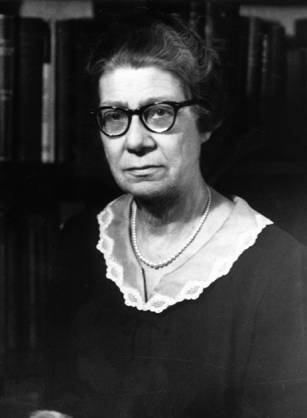
Virginia Kneeland Frantz was a pathologist and educator credited with a series of discoveries in the study of thyroid, breast and pancreatic tumors.

Helen Rodríguez Trías was an American pediatrician, educator and women's rights activist. She was the first Latina president of the American Public Health Association (APHA), a founding member of the Women's Caucus of the APHA, and a recipient of the Presidential Citizens Medal. She is credited with helping to expand the range of public health services for women and children in minority and low-income populations around the world.
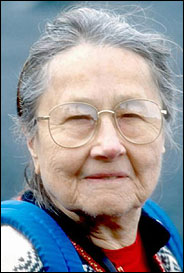
Frederica ("Freddy") Annis Lopez de Leo de Laguna was an American ethnologist, anthropologist, and archaeologist influential for her work on Paleoindian and Alaska Native art and archaeology in the American northwest and Alaska.

Hilda Worthington Smith was an American labor educator, social worker, and poet. She is best known for her roles as first Director of the Bryn Mawr Summer School for Women Workers in Industry and as a co-founder of the Affiliated Schools for Workers, although she also had a long career in government service supporting education for underserved groups including women, laborers, African-Americans and the elderly.

Millicent Carey McIntosh was an educational administrator and American feminist who led the Brearley School (1930–1947), and most prominently Barnard College (1947–1962). The first married woman to head one of the Seven Sisters, she was "considered a national role model for generations of young women who wanted to combine career and family," advocating for working mothers and for child care as a dignified profession.
Mary Sherwood was a physician, educator, and spokesperson for preventive medicine, public health, women's health, childcare. She played a vital role in many women's organizations and clubs, as well as contributed to many medical social movements in Maryland and Baltimore.
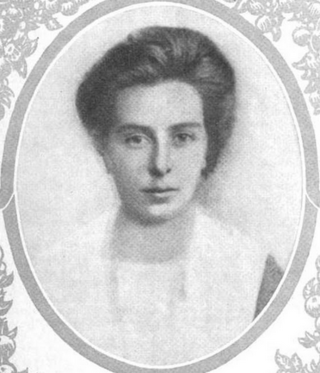
Emma Carola Woerishoffer was an American labor activist and settlement worker.
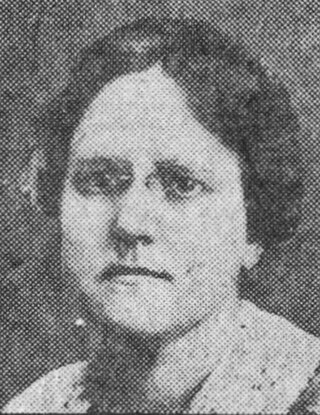
Ida Maud Cannon was an American social worker, who was Chief of Social Service at Massachusetts General Hospital from 1914 to 1945.
Helen Rehr was an American medical social worker, director of the Department of Social Work at Mount Sinai Hospital in New York.
Mary Stuart Fisher was an American radiologist who won the Marie Curie Award of the American Association for Women Radiologists. She spent the majority of her career as a professor of radiology at Temple University.
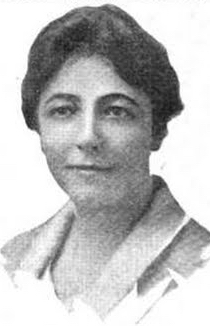
Carolina Marcial Dorado was a Spanish educator, writer, and lecturer based in the United States. She was head of the Spanish department at Barnard College from 1920 until her death in 1941.

Amy Hewes was an American economist, "a pioneer in introducing the minimum wage to the United States", who taught at Mount Holyoke College from 1905 to 1943.
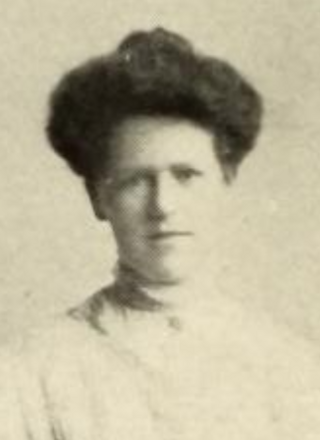
Ernestine Louise Friedmann was an American economist and educator. She was a professor of economics and taught at the Barnard and Bryn Mawr Summer School for Women Workers.

Alice P. Gannett was an American settlement house worker and social reformer. The Goodrich-Gannett Neighborhood Center in Cleveland, Ohio, is named in her honor.

Josephine Hemenway Kenyon was an American pediatrician and health educator who is known for her contributions to the field of childcare and public health education in the early 20th century. She was among the earliest women to graduate from the Johns Hopkins University School of Medicine and went on to have a distinguished career as a physician, researcher, and prominent advocate for scientific motherhood.















